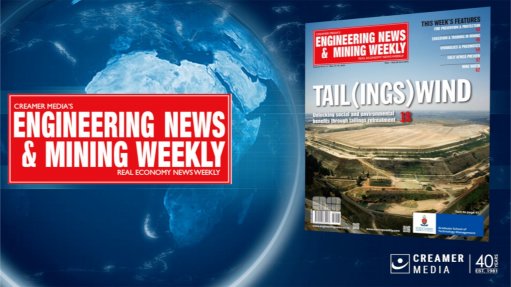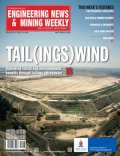Use of bargaining councils declining
The use of bargaining councils to negotiate wages is decreasing in South Africa, the South African Institute of Race Relations (SAIRR) said on Wednesday.
A survey by the SAIRR found that the number of workers and employers who used bargaining councils to negotiate wages declined from 9.6% in the second quarter of 2011 to 9.4% in the second quarter of 2012.
The total number of bargaining councils had fallen from 77 in 1996 to 46 in 2012 – despite several amendments to the Labour Relations Act of 1995, which sought to promote collective bargaining,
The data, sourced from Stats SA, also revealed that the majority of all wage adjustments were decided solely by the employer without consultation with employees.
Such wage adjustments accounted for 49% of all types of wage negotiation in the second quarter of 2012.
Bargaining councils are empowered to negotiate, enforce collective agreements, and prevent and resolve labour disputes.
They establish various schemes such as training schemes, pension, provident, medical, and other funds.
Proposals from bargaining councils are also sent to the National Economic Development and Labour Council (Nedlac) for labour policies and laws.
Bargaining councils can also confer consultative authority on workplace forums and decide what may or may not be an issue for the purpose of a strike or lockout.
Jonathan Snyman, researcher at SAIRR, said attempts had been made to close down 400 clothing factories that were not compliant with the minimum wages prescribed by bargaining council agreements.
The industry had shed 50 000 jobs in the past ten years.
"While collective agreements are breaking down in clothing, companies in the platinum sector are considering moving towards a collective bargaining system after strikes disrupted the sector in recent months," he said.
Mining sectors which already had collective bargaining but no council, were talking of setting up a bargaining council.
While collective bargaining helped to voice the concerns of the majority of workers, it did so at the expense of smaller unions and smaller employers, he said.
"The current legislation gives bargaining rights only to unions that represent 51% of the workforce in a particular sector.
"In theory, this means that unions that represent as much as 49% of the workforce within a sector are effectively marginalised," Snyman said.
The proposed changes in the Labour Relations Amendment Bill of 2012 sought to lower the threshold for organisational rights to below the 50% threshold, giving smaller unions more say in collective agreements.
Comments
Press Office
Announcements
What's On
Subscribe to improve your user experience...
Option 1 (equivalent of R125 a month):
Receive a weekly copy of Creamer Media's Engineering News & Mining Weekly magazine
(print copy for those in South Africa and e-magazine for those outside of South Africa)
Receive daily email newsletters
Access to full search results
Access archive of magazine back copies
Access to Projects in Progress
Access to ONE Research Report of your choice in PDF format
Option 2 (equivalent of R375 a month):
All benefits from Option 1
PLUS
Access to Creamer Media's Research Channel Africa for ALL Research Reports, in PDF format, on various industrial and mining sectors
including Electricity; Water; Energy Transition; Hydrogen; Roads, Rail and Ports; Coal; Gold; Platinum; Battery Metals; etc.
Already a subscriber?
Forgotten your password?
Receive weekly copy of Creamer Media's Engineering News & Mining Weekly magazine (print copy for those in South Africa and e-magazine for those outside of South Africa)
➕
Recieve daily email newsletters
➕
Access to full search results
➕
Access archive of magazine back copies
➕
Access to Projects in Progress
➕
Access to ONE Research Report of your choice in PDF format
RESEARCH CHANNEL AFRICA
R4500 (equivalent of R375 a month)
SUBSCRIBEAll benefits from Option 1
➕
Access to Creamer Media's Research Channel Africa for ALL Research Reports on various industrial and mining sectors, in PDF format, including on:
Electricity
➕
Water
➕
Energy Transition
➕
Hydrogen
➕
Roads, Rail and Ports
➕
Coal
➕
Gold
➕
Platinum
➕
Battery Metals
➕
etc.
Receive all benefits from Option 1 or Option 2 delivered to numerous people at your company
➕
Multiple User names and Passwords for simultaneous log-ins
➕
Intranet integration access to all in your organisation


















